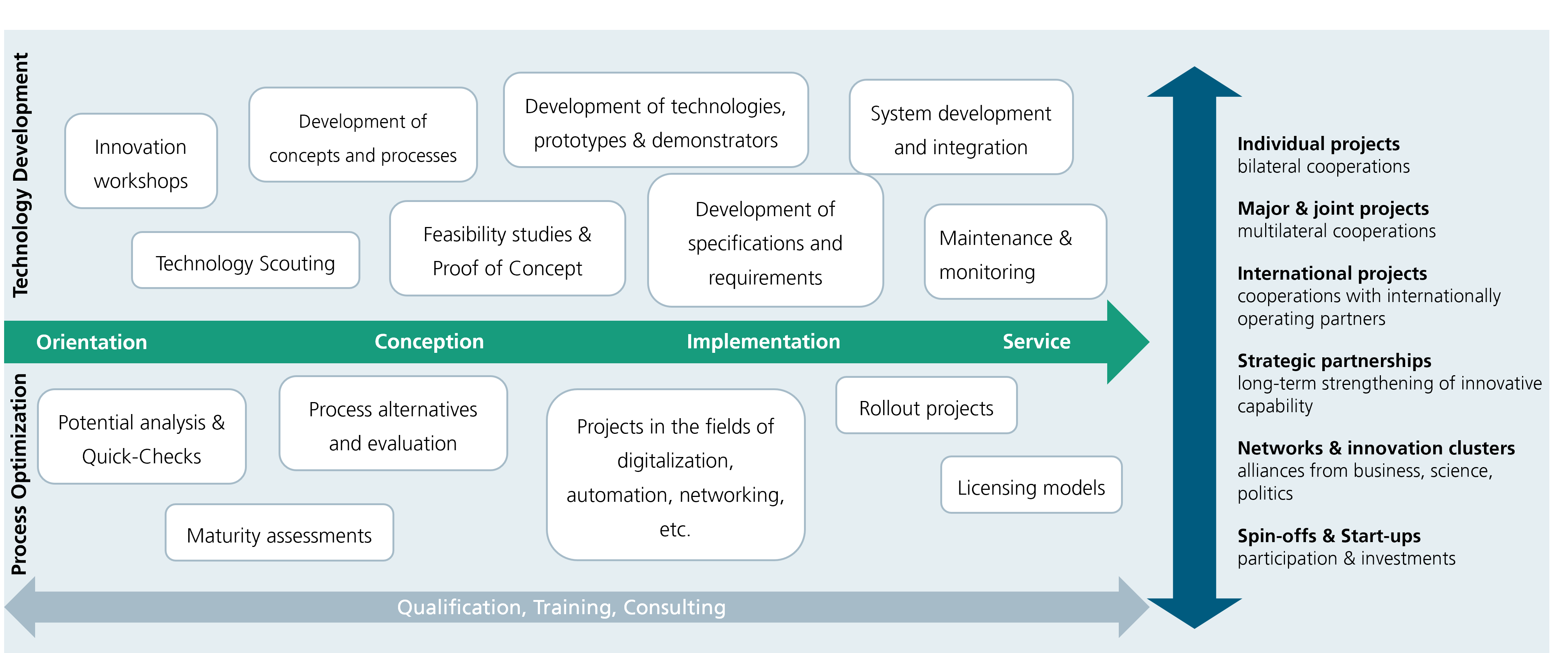Individual Orders
The typical case of cooperation: Your company sees a need for research or development; perhaps you want to launch a product innovation, improve a process, solve a logistical problem or have a process tested and certified. A conversation with Fraunhofer will reveal which solutions are available, which types of collaboration are suitable, and what level of effort can be expected. The cooperation - whether small or extensive - aims at solving the problem and introducing the innovation into the company or the market.
Large-scale Projects and Collaborative Projects
Some problems are too complex for a single party to solve. In this case, the entire Fraunhofer community is available to the customer. External parties and other companies can also be involved. Fraunhofer researchers are experienced in handling large projects efficiently and fairly. They also have knowledge of government subsidies that may be available.
International Cooperations
Fraunhofer is well represented in many countries around the world. Numerous Fraunhofer employees have international experience, appropriate cultural and linguistic skills, and first-hand knowledge of global markets. As a result, internationally active companies can also be supported abroad.
Strategic Partnerships
Fraunhofer aims to drive forward promising technologies. This preliminary research often results in long-term partnerships with companies. One example is the Dortmund Oberflächen-Zentrum (Surface Center), where companies from the steel industry work together with Fraunhofer institutes and universities. The goal of this network is to develop new coating technologies.
Innovation Clusters - Networking Boosts Performance
The execution of complex projects can require many competencies and disciplines. Long-term cooperation between several research institutions and companies is beneficial. For this purpose, Fraunhofer has created innovation clusters with the support of the German federal government. The aim of such clusters is to bring together competent partners in a region to solve challenging tasks. In addition to industry and universities, other non-university research institutes located there are also integrated, which can make important contributions to the corresponding subject area.
The local presence of research organizations, investors and companies creates networks that can lead to new business ideas and the founding of new companies. Regional innovation clusters close the gap between the business and science communities. Successful clusters stimulate competition and at the same time create fruitful cooperation for everyone's ultimate benefit.
Spin-Offs
Fraunhofer researchers are creative and know how to convert good ideas into practice. They often start their own business with a new development, a product or a process. Fraunhofer only participates to a certain extent in such a start-up. In some cases, the customers of a new development are themselves interested in being part of the spin-off company. This enables them to participate in the further success and development of a technology in the long term.
The contact between a spin-off and the original Fraunhofer Institute usually remains close. The new companies know the advantages of research cooperation from their own experience, use their contacts and continue to enjoy working with Fraunhofer.
 Fraunhofer Group for Production
Fraunhofer Group for Production